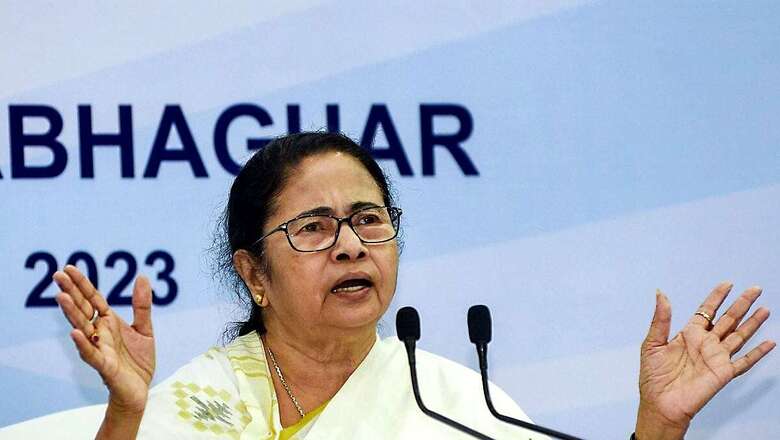
views
West Bengal Chief Minister Mamata Banerjee on Wednesday claimed that in the name of withdrawing provisions under the sedition law, the Union home ministry is introducing more severe and arbitrary measures in the proposed Bharatiya Nyaya Sanhita.
She claimed that a serious attempt is being made by the Centre to quietly introduce very harsh and draconian anti-citizen provisions in its efforts to substitute the Indian Penal Code, Code of Criminal Procedure (CrPC) and the Indian Evidence Act.
"Earlier, there was Sedition Law; now, in the name of withdrawing those provisions, they are introducing more severe and arbitrary measures in the proposed Bharatiya Nyaya Sanhita, which can affect citizens more gravely," the chief minister wrote on 'X'.
Stating that she has been reading the drafts prepared by the Union home ministry to substitute the Indian Penal Code, Code of Criminal Procedure and the Indian Evidence Act, Banerjee said she is "stunned to find that there is a serious attempt to quietly introduce very harsh and draconian anti-citizen provisions in these efforts." While maintaining that the current Acts should be decolonised not only in form but also in spirit, she urged the "jurists and public activists of the country to study these drafts seriously for democratic contributions in the realm of the criminal justice system." Banerjee wrote in the social media handle that her colleagues in Parliament will raise the issues at the standing committee.
"Laws need to be improved in light of experiences, but colonial authoritarianism should not be allowed to have backdoor entry at Delhi," the Trinamool Congress supremo said.
On August 11, the Centre had introduced three Bills in the Lok Sabha to replace the IPC, CrPC and Indian Evidence Act, proposing among other things repeal of the sedition law and introducing a new provision with a wider definition of the offence.
Besides defining terrorism for the first time, the changes aimed at transforming the country's criminal justice system included provisions for maximum capital punishment for mob lynching, sexual assaults on minors, maximum 20-year imprisonment for all types of gang rape and community service as one of the punishments for first-time petty offences.
Union Home Minister Amit Shah introduced the Bharatiya Nyaya Sanhita (BNS) Bill, 2023; Bharatiya Nagarik Suraksha Sanhita (BNSS) Bill, 2023; and Bharatiya Sakshya (BS) Bill, 2023 that will replace the Indian Penal Code, 1860, Criminal Procedure Act, 1898, and the Indian Evidence Act, 1872, respectively.
Shah had said the purpose of the three new Bills is not to punish but to give justice. He said the new Bills will protect all the rights of citizens given by the Constitution.













Comments
0 comment